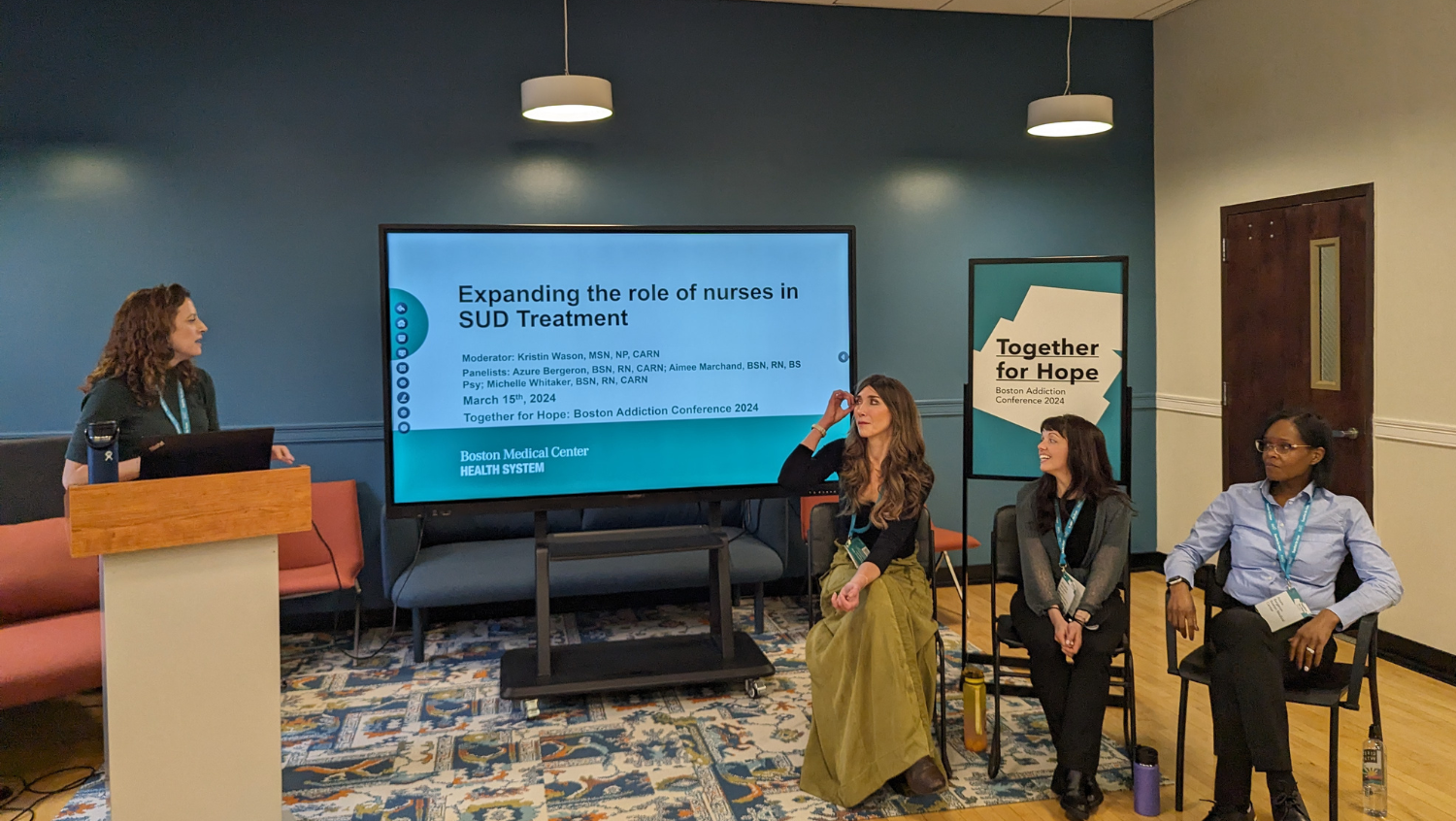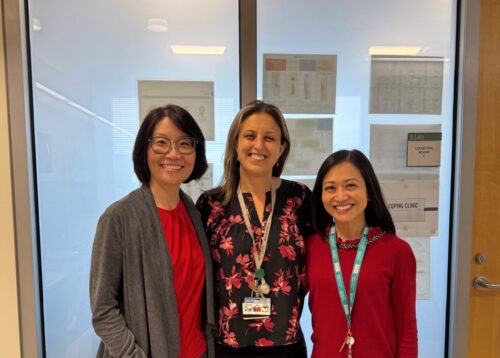Boston Medical Center’s Addiction Conference Sparks Discussion on the Role of Nurses in SUD Treatment
March 21, 2024
By Katie Dillon

(Boston Medical Center)
From left to right: Kristin Wason, MSN, NP-C, CARN, Aimee Marchand, RN, Michelle Whitaker, RN, Azure Bergeron, RN, CARN during the panel discussion on March 15 2024 (Boston Medical Center).
A harm reduction nurse cites training and education as one way for more nurses to get on board with viewing addiction treatment holistically.
Last week, on March 15 and March 16, hundreds gathered at Roxbury Community College for Boston Medical Center’s Together for Hope: Boston Addiction Conference 2024. The two-day event brought together experts from a range of backgrounds and dove into a plethora of topics related to substance use disorder. Attendees had opportunities to engage in panels, presentations, and smaller breakout sessions.
One such breakout session — “Expanding the role of nurses in SUD treatment” — was moderated by Kristin Wason, MSN, NP-C, CARN, clinical nurse educator and fellowship director of the Grayken Addiction Nursing Fellowship at Boston Medical Center (BMC). Panelists included Azure Bergeron, RN, CARN, also of BMC, Aimee Marchand, RN, of the South End Community Health Center , and Michelle Whitaker, RN, from Boston Health Care for the Homeless Program’s Supportive Place for Observation and Treatment (SPOT). Both South End Community Health Center and Boston Health Care for the Homeless Program are key community partners for BMC, and both health centers share providers with BMC. During the panel discussion, a theme emerged around the unique role nurses have in harm reduction: the ability to form close relationships with patients and hold space for more than just the medical aspects of their lives.
Bridging knowledge gaps in harm reduction
Toward the end of the breakout session, the panel opened to audience Q&A. One audience member from an undisclosed health center in Massachusetts noted how many nurses in her workplace don’t have much experience with caring for people with substance use disorder.
“My question is: How do we bring our colleagues along with us and help them see that addiction medicine is complex,” she asked, “and we need to be doing more than just prescribing medication and sending people on their way?”
Whitaker responded enthusiastically with her own experience heading up nursing education at Boston Health Care for the Homeless Program about ways this nurse could start to educate her colleagues on principles of harm reduction:

Michelle Whitaker, RN, at Together for Hope: Boston Addiction Conference 2024
“Until recently, harm reduction and addiction medicine have often been missing from most nursing school programs. I was lucky that the nurse manager before me [at BHCHP] was into education, and she would go to other partner organizations to educate their nurses. When I inherited the program, I wondered ‘What about our nurses?’ So, I started a monthly harm reduction 101, a training on the basics of what we do in SPOT and other aspects of harm reduction, like taking vitals, doing assessments, and building that therapeutic relationship with the patient. I’m delighted to say that this is now a mandatory training for all new hires at BHCHP. It doesn’t have to be that fancy either. Maybe you don’t have time to build out your own training, but you could be the one to suggest that you all sign up for the same class or online training and use that as a way to build camaraderie and also get everyone to have the same language to talk about the work we do in addiction medicine.”
Learn more about the Grayken Center for Addiction Training and Technical Assistance, which offers free recorded trainings for healthcare professionals to educate themselves and their colleagues on harm reduction and other aspects of addiction medicine.


